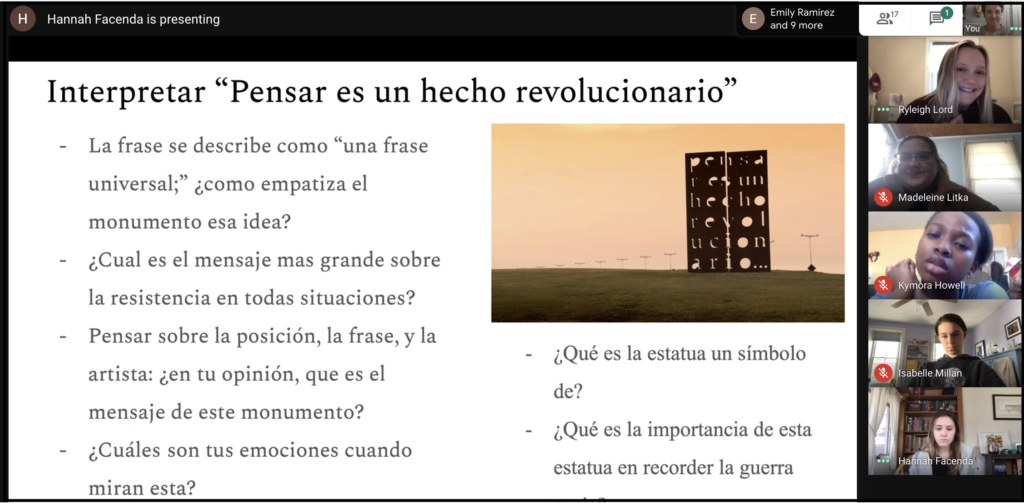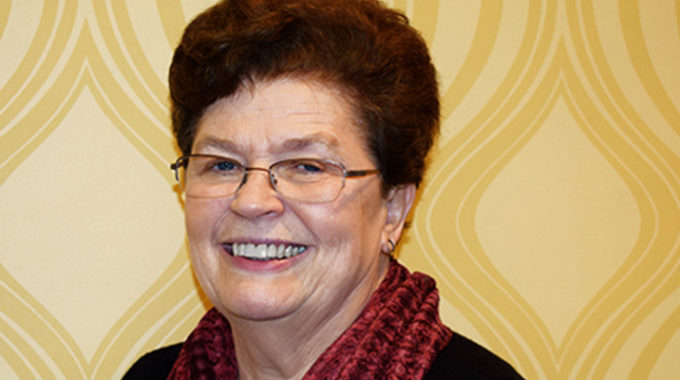“I owe everything I am today to those wonderful Sisters,” said Peg D’Agostino, a member…
Mercy Perspective on AP Test Changes

AP Exams begin Monday, May 11, and not surprisingly have a new format that addresses the new reality of remote learning. Major changes listed on the AP website include:
- Exams will not cover an entire year’s worth of material to be fair to students who have lost significant instructional time.
- Exams can be taken remotely from a computer, tablet or smartphone.
- The exams will be open book / open note.
What do these changes mean for Mercy AP students, and how can Mercy AP teachers help prepare them? We asked David Roberts, Dean of Curriculum and Instruction at Mount St. Mary Catholic High School in Oklahoma City, Oklahoma, for his input. MSM offers 20 AP courses as part of its rigorous academic program.
How do you think AP teachers can help prepare their students for the abrupt change in how the test will be administered – both the environment (at home instead of at school) and format of the test itself?
David: I think the first step is acknowledge that there are some factors in the environment and the format that are outside the students’ and teachers’ control. To their credit, College Board has tried to re-design the exam administration to make the test-taking experience as equitable as possible; nonetheless, there is no way to completely mimic the standardized environment of an in-school test administration.
That said, teachers can collaborate with students to identify the environmental factors conducive to a successful test-taking environment. Teachers, administrators, and counselors can work together with students to brainstorm how to create such an environment in the students’ homes.
As for the format, one fundamental step is familiarity. Teachers will need to — and I’m in fact 100 percent confident they already have — explain and give students examples of the changes to their respective exam format. Anxiety is lowered when students know what to expect, and even though these changes are being implemented so closely to the exam date, clarity of expectations is key.

How would you advise students / how are you advising students who are nervous about how the changes will impact their score?
David: Again, I think we have to begin by acknowledging that such concerns are reasonable. Students spent three-quarters of the school year prepping for a particular assessment, and that assessment has been changed with relatively short notice. What we want to emphasize, though, is that the assessment has been modified in two key ways that College Board assures will help achieve fairness and equity: one, that the content and skills being assessed correlate with what’s typically taught in courses only through early March (when most schools began closing); two, that exams are open book/open note. These two changes are intended to relieve some of that concern about the impact of the changes on the students’ scores.
For students who may need to take multiple AP exams on the same day, how might teachers and faculty prepare them to stay calm and focused? (This is really helpful for all AP test takers, not just those taking multiple exams in one day!)
David: I would start with the same recommendations we’d make for in-person exams: get a good night’s sleep and eat their normal breakfast and lunch. (This advice seems particularly relevant now, though, as we at Mount St. Mary are finding that many of our students’ sleep schedules are becoming irregular without the routine of the school day.) Next, the College Board has released a clear, detailed description of each new exam question as well as an explanation of how the updated exam question corresponds to the regular exam for the course. Students and teachers should review this information carefully together. Finally, I would affirm and encourage the teachers and students: these students are ready! The benefit of an AP course is that it trains students all year for the kind of sustained concentration these exams require.

Some changes to the test – for example, the open book/open note format and the open response questions – may be a relief to some, but an added source of stress for others. How might these two changes put some students at a disadvantage, and how can teachers help prepare students for them?
David: Teachers who administer timed assessments with open book/open note format know the risks: a student might become too engrossed with verifying and identifying information from the resources to finish in time. Students need to be taught strategies for when and how to use a resource. It’s all about timing and cost-benefit analysis; the two minutes it takes to verify a definition, for instance, might be better spent on another aspect of your response. Some teachers might opt for another approach altogether: prepare not to use the allowed resources at all and forego them on the test date unless a resource can be used immediately. The thinking of this approach is sound — the benefit of using the resources is offset by the lack of time to use them effectively.
Are there any other considerations that would be helpful for Mercy administrators/educators to think about as the test dates approach?
David: I try to keep in mind that these changes to the exam are a response to this reality. The AP exams are supposed to be administered in as standardized an environment and format as possible (hence the term “standardized test,” of course); yet, our current conditions make things about as un-standardized as they can be. So anything that Mercy educators can think of to help standardize the experience for students given their current circumstances will be helpful. What variables that might impact an individual student’s performance are you able to eliminate or mollify?
MESA sends prayers and best wishes for all Mercy students who will be taking important exams in the coming weeks and expresses gratitude to faculty and counselors who are preparing and supporting them.




